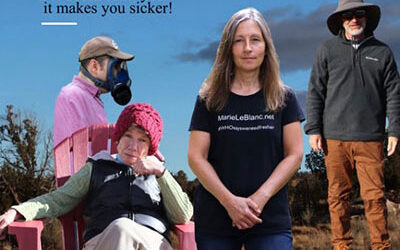I’m a big believer that whether or not you eat breakfast in the morning, and what you choose to eat, dictates the quality of your day.
When I was little, I knew it was going to be a good day when I got to be the one to open a brand new jar of peanut butter.
I lived for that moment where your butter knife first plunges into the creamy, untouched, golden brown peanut butter and adheres decadently to the clean blade. I loved the way it seeped into the nooks and crannies of my warm honey wheat english muffin as it melted and became one with the dough. It was breakfast bliss.
Now, starting my day this way would result in an inflammatory nightmare. A peanut buttery breakfast would be a fast track ticket to the E.R., complete with the use of an epi-pen, angry lungs, a radical rash, and an embarrassing explanation to an emergency room doc. I like to call it, “peanut butter annihilation”.
Not only did chronic illness turn my life upside down, but it changed the way in which I live it. A significant change in diet is one of the many changes I was forced to make, a change that I surprisingly don’t resent a bit. When I fell ill my immune system took a hit, and while parts of it were suppressed by infection, other parts went autoimmune. My struggle with autoimmunity lead to the development of inappropriate immune responses to certain foods, and I developed more food allergies and sensitivities than I could count on my fingers and toes. One of the most severe allergies was to peanuts.
Peanuts are the most common food allergen amongst the nation today, but it is also the food allergy that is most likely to produce a lethal allergic response. The rate of peanut allergies in children has rapidly increased over the past 15 years, and allergic responses continue to heighten in severity. Allergic children and adults alike now have the potential to react to as little as 1/2000th of a single peanut, making finding “safe” packaged food quite a challenge.1
Even for those who have not developed a peanut allergy, peanut butter may not be a friendly food. Peanuts are naturally susceptable to mold growth in storage, and produce a carcinogen called aflatoxin.2 Aflatoxin is a type of cancer-causing mycotoxin that is found in many species of mold and fungus. Research has shown that the aflatoxin found in peanuts lead to liver cancer in rats, and that all 29 jars of peanut butter purchased at local grocery stores contained aflatoxins greater than 300 times the amount deemed “safe”.3,4
Ick.
After learning of my potential likelihood for a deadly response to my creamy jar of Skippy, combined with my new knowledge of the moldy nature of peanuts and peanut buttery spreads, it wasn’t hard to give up the treat. Much like my commitment to consuming unprocessed foods and remaining gluten and refined sugar free, it was a lifestyle change that involved more physical benefit than sacrifice. But, it was a little difficult at first to find something to spice up my healthy daily breakfast and afternoon snacks.
That is, until Sunbutter saved the day.
My favorite ways to eat Sunbutter: Smothered on Lundberg Wild Rice Cakes, as a delicious dip for Granny Smith Apples, or smoothed into the crevice of Fresh Celery.
I’m convinced that Sunbutter’s name says it all. The first time I tasted it, I declared that it was sunshine in a jar (a proclamation that may have been slightly influenced by nut butter deprivation). Sunbutter is an alternative to nut butter, made entirely of ground sunflower seeds. I opt for their Organic, Unsweetened Sunbutter because the only ingredient in the jar is “Organic Sunflower Seeds”. That’s it.
The fact that Sunbutter offers an organic spread with no added sugar, chemicals, preservatives, hydrogenated oil, fillers or mystery, is fantastic. But, what’s arguably even more significant about the brand is that they manufacture their products in a gluten and peanut free facility. This means that the product is entirely safe for those who suffer from life threatening peanut allergies.
I like to think of my food as fuel. I could fill myself up with low grade fuel that’ll likely cause performance problems, clog my filter, or slowly deteriorate the health of my engine. Or, I could fuel myself with premium fuel that aids me in my effort to get where I wish to go and keeps every mechanism of my body running as it should. Sunbutter is an optimal choice to fill up on because:
1. Sunflower Seeds contain more vitamin E than almost any other food. Vitamin E is an anti-inflammatory nutrient, and protects our cells from free radical damage and our body from oxidative stress. It aids in mediating digestive dysfunction and skin conditions, and protects us from developing cardiovascular and digestive disease.5,62. Sunflower Seeds contain the highest amount of phytosterol when compared to other seeds and nuts. Phytosterol helps lower bad cholestorol while raising the good.53. Sunflower Seeds are a vegan source for the essential vitamins B1, B5 and B6. They are also a strong source of folic acid, which is essential in maintaining neurological health, red blood cell formation and proper liver detoxification.5,6
Thus, Sunbutter is the perfect way to start the day. It’s creaminess and addictive taste also doesn’t hurt.
Here’s some great allergy-friendly, diet abiding Sunbutter recipe ideas from some fantastic gluten free bloggers that will help spice up breakfast, snacks and dessert:





2http://bodyecology.com/articles/healthiest_nuts.php
3http://www.marksdailyapple.com/aflatoxins-or-another-reason-to-shun-peanuts/#axzz1k2obPfnL
4http://www.danmurphydc.com/Aflatoxin.peanuts.pdf
5http://whfoods.org/genpage.php?tname=foodspice&dbid=57
6http://www.healingfoodreference.com/sunflower_seeds.html










0 Comments